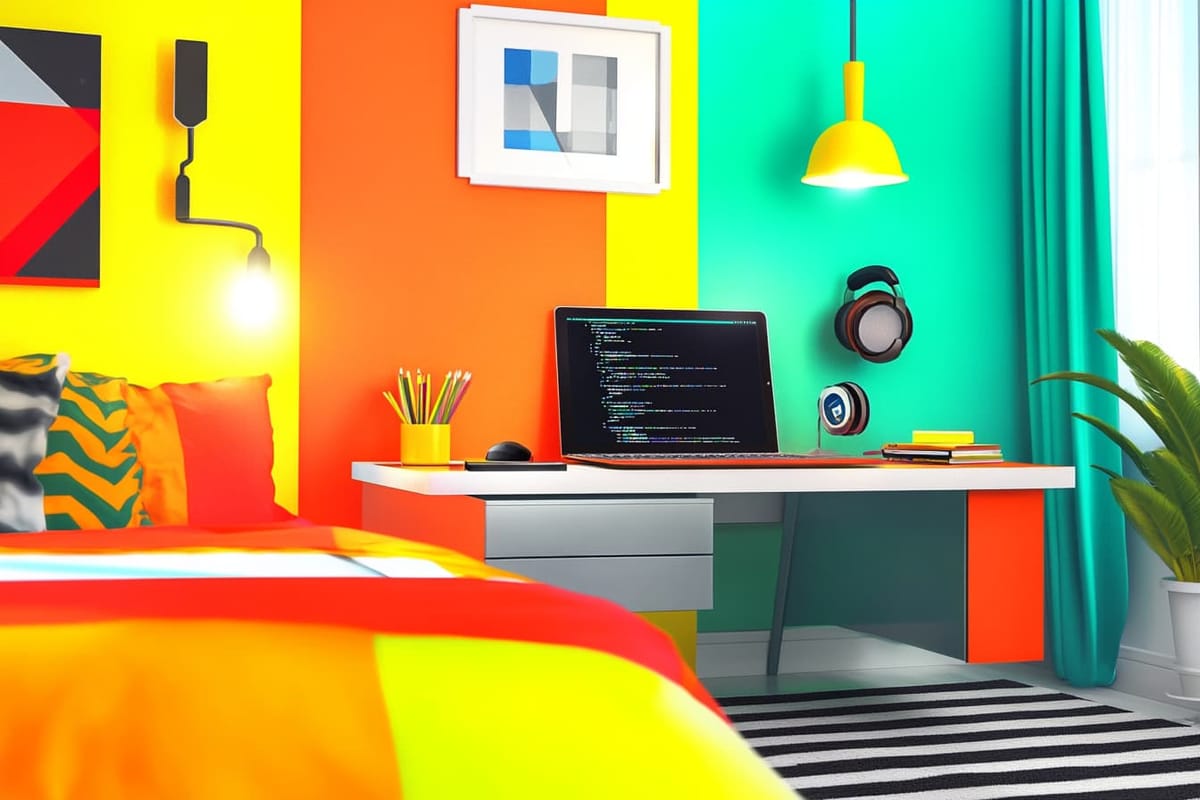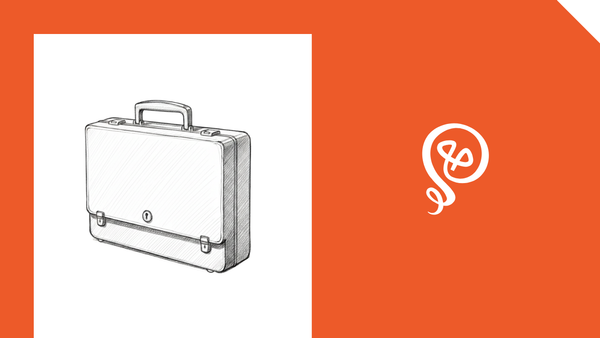4 Things in My Freelance Budget That Are Worth Every Penny
Bring joy to your business.

In my freelance budget, I like to differentiate between critical and non-critical expenses. Critical expenses are necessary to run my business, whereas non-critical expenses fall into the "nice to have" category. If I had to, I could cut them from my budget.
But there are a few non-critical expenses that I would be very sad about cutting — because they make my work so much better or more enjoyable.
Here are my favorite non-critical expenses. And as a bonus: business expenses are a tax write-off!
1. A Weekend Alone
I live in a house with five people, including three kids. While the kids are at school, my days are filled with client work. My evenings are filled with family responsibilities.
I set aside time for non-client work during the week, such as planning my social media content or sending invoicesmy, but it's a lot harder to fit in bigger projects that I want to do for my business. I simply don't have large blocks of time to sit and focus.
To give myself that time, I check myself into a hotel for the weekend. I plan this for a three-day weekend (like when Monday is a federal holiday). This gives me several days of uninterrupted time, which is invaluable for my prodcutivity.
I maximize my time by planning out what I want to accomplish in advance. I'll also buy food and some snacks to put in the room fridge, to minimize the number of times I need to leave. I even have a portable monitor that I can use with my laptop so I have dual monitors in the hotel room.
For example, during one trip I was determined to get my social media scheduled out for several weeks so I wouldn't have to think about it. By the time I left my hotel room, I'd scheduled more than 300 posts across my different channels. I've also planned workshops or created free resources during my weekends alone.
I'm always overly ambitious with what I want to get done. But I also have a running "hotel list" of things I want to do on my next trip. Ideally, I like to do this once per quarter.

2. Tools that make my life easier
I invest a lot in various tools in my solopreneur tech stack. Last time I checked, I was paying for more than 20 different tools every month. (You can check out my tech stack here).
Some are 100% necessary. I couldn't function without Airtable, for example, as it's the central hub for my business. I also rely heavily on Zapier [affiliate link], and the automation I have set up makes my bandwidth possible.
But I also pay for some "nice to have" tools. I'm on a paid version of ChatGPT. Could I get away with the free version? Probably. But I like some of the features of the paid version. I also use Loom AI to create written standard operating procedures for my business. Could I create videos only, and skip the written version? Sure. But I like having both the video and written formats. I also use Scribe to create screenshots for my tutorials website, which is a lot easier than the manual cropping that I'd have to do with other screenshot tools.
None of these are mission critical, but they certainly streamline my work and save me time.
3. Brain.fm and Flow Club
I'm a freelance writer, so I create content (usually blog posts) for clients. I also have my own blog, Substack, and newsletter. So I'm writing all day, every day.
Staying focused is essential, so I pay for two services: brain.fm and Flow Club.
Brain.fm provides focus music that helps me concentrate. I've tried other music apps, and there's something really unique about this app's music. The website claims that brain.fm "contains patterns that shift your brain state with entertainment. Our music sounds different — and affects you differently — than any other music."
Flow Club offers virtual co-working. You join sessions for anywhere from 30 minutes to a few hours, and work with a small group of people. Attendees are encouraged to stay on camera, though it's not required. It's a form of body doubling, a productivity technique where you work alongside another person to enhance focus and motivation. I usually join anywhere from one to three Flow Club sessions per day.
4. Outsourced help
I've been running my solo business for several years. Over the past year, I started investing in outsourced help. I realized that even though I could do everything myself, it doesn't mean I should.
I hired a bookkeeper and a virtual assistant. My bookkeeper categorizes transactions in Quickbooks, reconciles statements, and prepares month-end reports. My VA does some organizational tasks and preps some social media posts in Canva (though I still write the copy).
This has freed up my time and allowed me to focus on what I'm good at. I'm not bogged down by certain aspects of my business. Having this support makes a huge difference in my efficiency and my ability to grow my business. (Plus, then I come up with projects that I need to work on during my next hotel trip...)
The ROI of these expenses
At the end of the day, investing in your freelance business is about more than the money you spend. It's about buying back time, reducing stress, and giving yourself the space to grow. While these expenses aren't essential, the return on investment (ROI) makes them 100% worth the cost. I gain so much.
The right expenses can make your work more efficient and enjoyable — which helps you build a sustainable business. Don't think of non-essential expenses as a splurge: think of them as an investment in yourself.
Check out my free eBook: 17 Smart Tools Solopreneurs Need to Start, Grow, and Scale.






